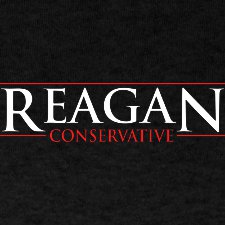A Chance to Make History: What Works and What Doesn't in Providing an Excellent Education for All
by
Teach For America founder
Wendy Kopp is a current look at a positive force for education improvement in America. Education books about various educational programs are released each year, but as numbers change, the books become outdated and less accurate, or less applicable. So,
A Chance to Make History, released in 2011, and with stats reported from the latter part of 2010, is a very good current snapshot of the education system in America.
Right at the outset, I wish I had the book in electronic format so I could easily count the number of times the words “transformation” or “transformational” were used. I think this word was the right choice for the needed reforms in American education. I do think those word uses were incorrectly applied in some instances, where the words were another way or saying “better”, “different” or “changing”. What American education truly needs is Transformational Change.
Calling for such change is another way of saying that the current system is beyond being fixed by piecemeal measures, or tinkering around the edges. As was pointed out in this book, more money and more funding is not always the answer. In many cases we are simply spending more for the same, mediocre results.
What
A Change to Make History clearly demonstrates is that private enterprise can achieve better results than can any level of government, such as local or federal. There are several instances where not having to deal with any government bureaucracies allowed innovators and investors the chance to get in and do the work of educating children. One great quote to illustrate this:
"Post-storm, there was no bureaucracy left, and it really was an open opportunity for people to come down and get schools open quickly, schools that could be designed to close the achievement gap right from the start." (p. 96, in reference to post-Katrina New Orleans)
I understand that Teach for America does get some federal funding, but that most of its funding is philanthropic and received from donors. I object to the federal government being involved in education at all. If government has to be involved, I would prefer to see them solely fund organizations such as Teach For America. Get the bureaucrats who look at numbers and studies and decide the fate of students across the country that they have never seen and will never see, out of the way of state and local education authorities.
The federal government has proven it can not manage large, complex systems well. Look at the post office, which recently had to be bailed out to the tune of $11 billion. If the federal government had to go to a rational bank and apply for a loan to fund the Department of Education, and if they presented the current model for education as their business plan, they would be laughed out of the building, denied the loan, and shut down for good.
Specifically,
A Chance to Make History is an enjoyable read, it is a narrative, with stories that the author comes back to time and again. It is a hopeful book, and a positive book when you see the positive results. I felt the book, at 218 pages, was a quick read, and frankly I could have kept reading. Fortunately, the book is loaded with some great footnotes for further research. Finally, this book might be seen very much as a sort of brag sheet for Teach For America. I’d advise readers to get over that fact and focus on the results oriented focus of the book instead. Whether it’s through Teach For America or similar efforts, let’s start transforming education in this country by unleashing the entrepreneurial spirit that can be found in our 310 million citizens. Let’s start at the local, community level and build up from there.
I'll close with this quote from page 113:
"I believe part of the reason that the achievement gap has not narrowed in an aggregate sense over the past two decades, despite all the energy and resources invested in education reform, is that our policy makers and influencers have been so obsessed with finding a quick fix that we have gone lurching from one silver-bullet solution to another rather than embracing the big idea of transformative education and engaging in the very hard work of implementing it. Equally distracting, we have also spent inordinate amounts of energy blaming one group or another-"silver scapegoats," we could call them - when there are clearly larger systemic issues at play. The fact is that our system was not initially designed with an understanding of what it would take to change the path predicted by students' socioeconomic background."
The time for Transformational Change in American education, is now.




